Sociology Blog: Inequality and the Cashless Economy Critical Analysis
VerifiedAdded on 2023/04/23
|5
|913
|405
Essay
AI Summary
This essay critically analyzes Karen Sternheimer's blog post 'Inequality and the Cashless Economy,' focusing on the disparities faced by unbanked and underbanked individuals in a society increasingly reliant on digital transactions. It highlights how the benefits of a cashless system often bypass those without access to banking or digital infrastructure, exacerbating existing inequalities. The author reflects on the relevance of this issue, particularly in the context of developing countries grappling with poverty and unemployment. The essay further explores the power dynamics at play, contrasting the privileged group with access to financial stability and online banking against the lower-income population excluded from these benefits, ultimately arguing that a truly equitable cashless society requires equal opportunities and accessible means for all individuals.
1 out of 5
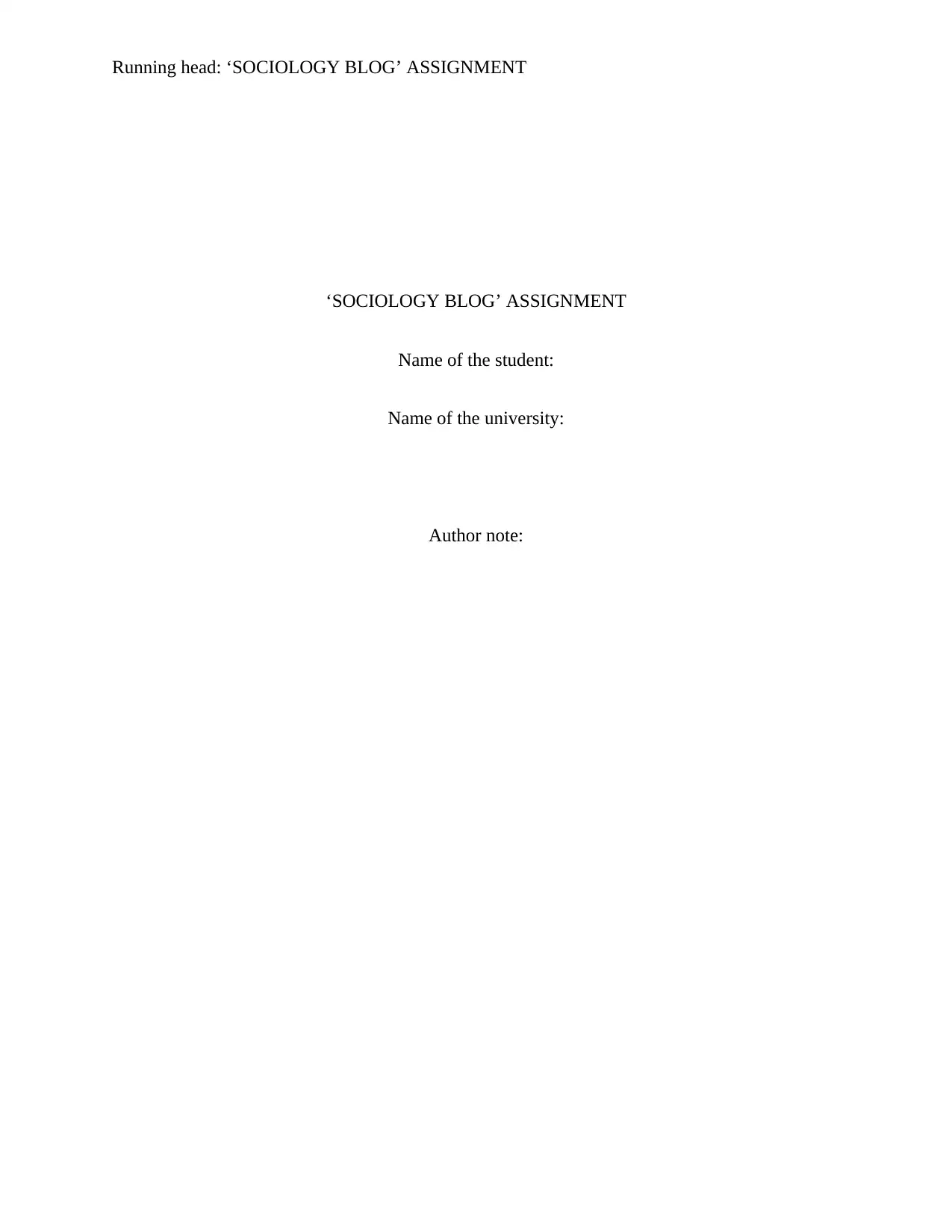
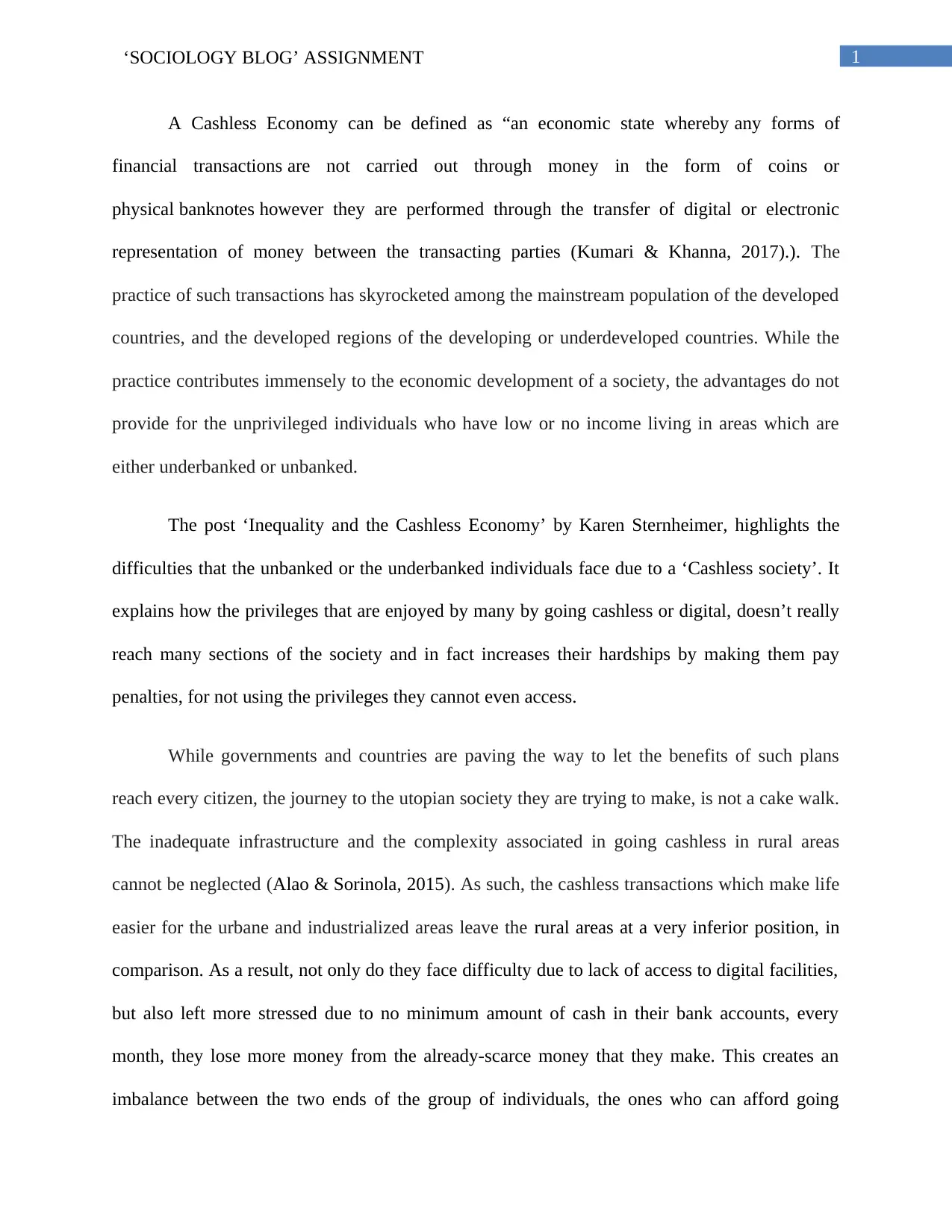
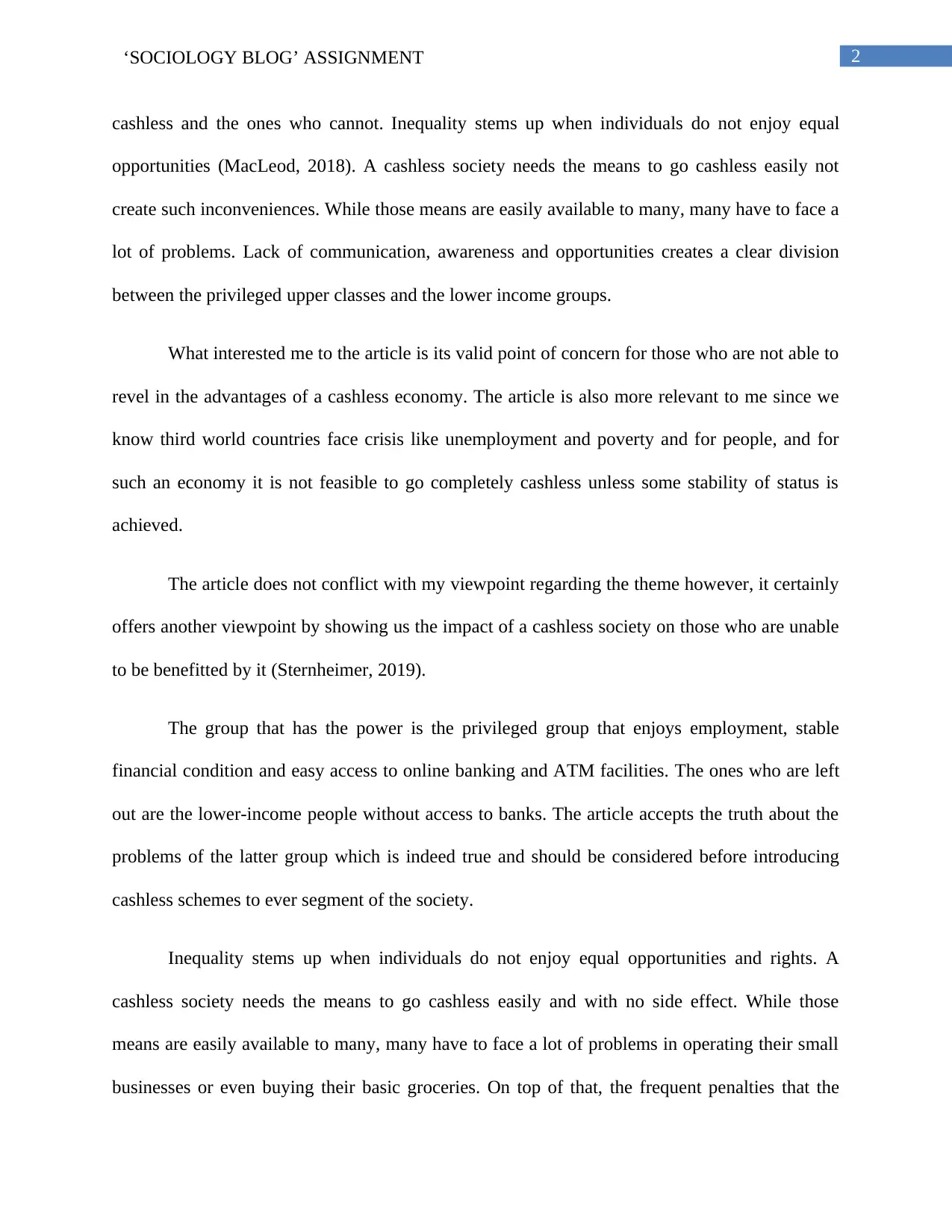

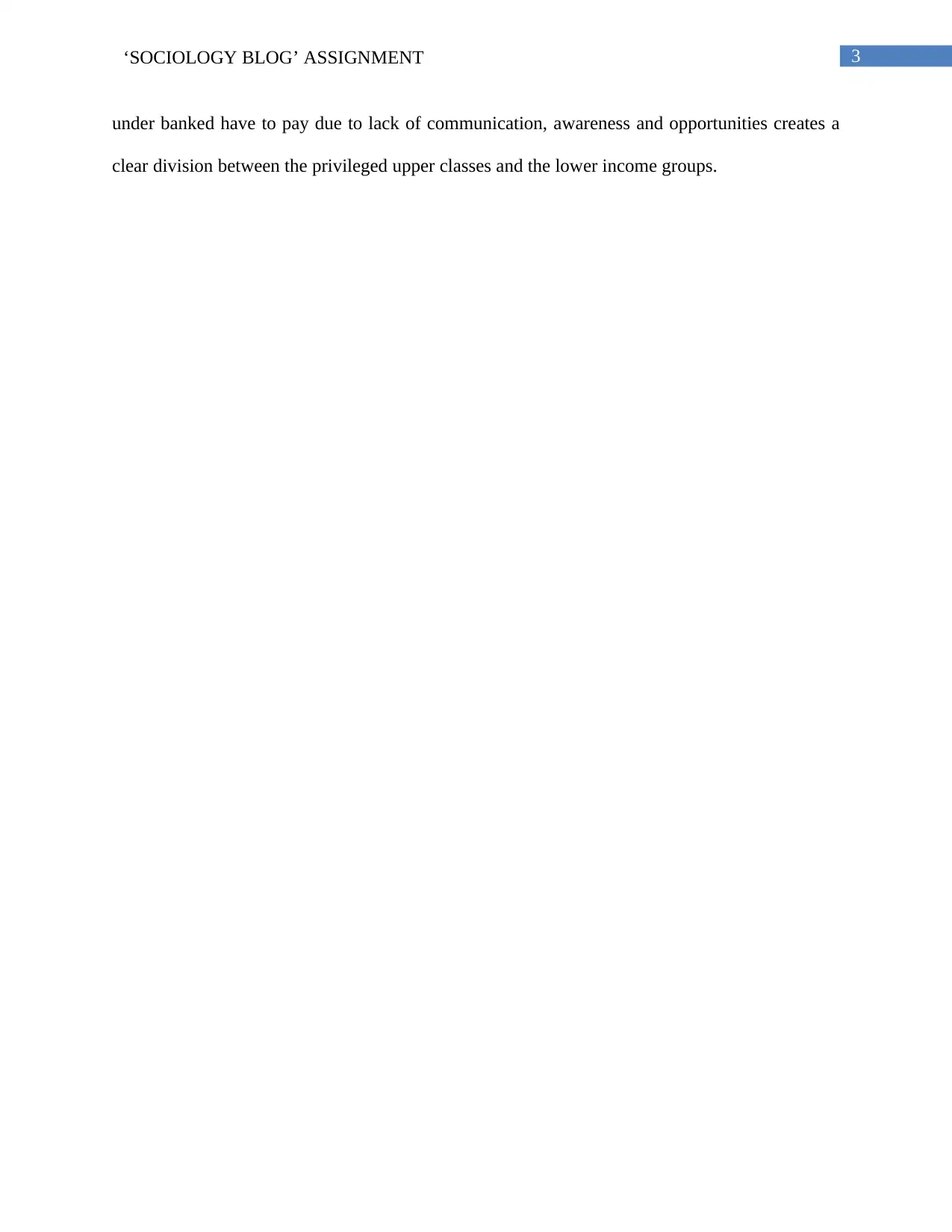
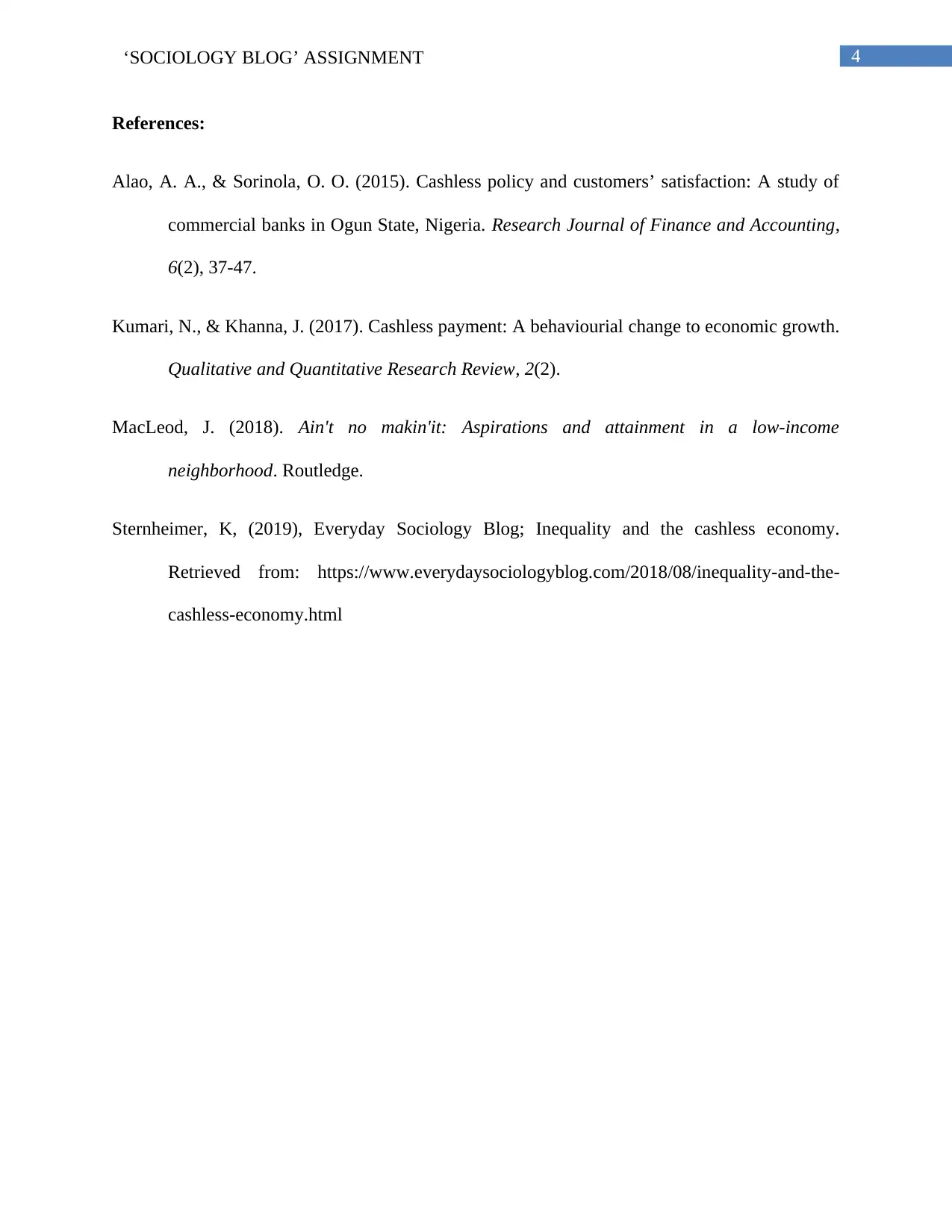

![[object Object]](/_next/static/media/star-bottom.7253800d.svg)